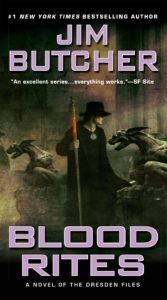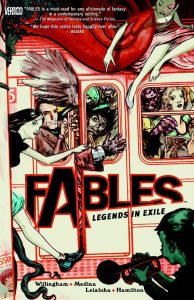 I don’t even know how to review this movie properly. Which is to say, outside the context of a three season television series that you may not have seen before. Inside that context, it would be a breeze, believe me. But outside, there are two giant stumbling blocks in my way. One is how immediately immersed I was in the world, just as though I’d never left, without any of the pesky (albeit brilliantly accomplished) ten minutes of introduction to all the characters you wouldn’t know about if you’d missed the show in the first place. This lack, in addition to highlighting my lack of objectivity, serves to introduce the second stumbling block, which is that I spent a minor chunk of change on the kickstarter for the movie. Having been funded by fans, there’s a really good chance that it’s not my failure to separate out my sense of homecoming and look at it externally that’s the problem. They know where their money came from and who their primary audience would be, and I think maybe it’s not concerned with newcomers in the first place. So, I’ll give up on that angle and move on.
I don’t even know how to review this movie properly. Which is to say, outside the context of a three season television series that you may not have seen before. Inside that context, it would be a breeze, believe me. But outside, there are two giant stumbling blocks in my way. One is how immediately immersed I was in the world, just as though I’d never left, without any of the pesky (albeit brilliantly accomplished) ten minutes of introduction to all the characters you wouldn’t know about if you’d missed the show in the first place. This lack, in addition to highlighting my lack of objectivity, serves to introduce the second stumbling block, which is that I spent a minor chunk of change on the kickstarter for the movie. Having been funded by fans, there’s a really good chance that it’s not my failure to separate out my sense of homecoming and look at it externally that’s the problem. They know where their money came from and who their primary audience would be, and I think maybe it’s not concerned with newcomers in the first place. So, I’ll give up on that angle and move on.
Do you even know they made a Veronica Mars movie? Fan or not, if you missed the kickstarter, it may have slid under the radar. Anyway, it released last weekend, and you can theater it or stream it. (I think I get a bluray eventually? But it was streaming in this case, as I live in ye olde future.) If you are not a fan of the show through inaction, you’ll get a lot more out of the show than the movie, at least until later. If you are not a fan of the show through choice, you sadden me. If you are a fan of the show… here’s that really easy review I promised you a while ago.
You know how I said it immediately felt like a homecoming? That was not a clever riff on the fact that one of Veronica’s reasons for returning to Neptune is her ten-year high school reunion. (The main reason being, of course, a murder.) Because, really, it felt like no time had passed at all since the last episode I watched. And okay, not remembering much of what happens in either of the latter two seasons meant I was playing a little bit of catch-up, but not much, and not in a way that took me out of the joy of coming home. By the end of the movie, I was ready for a new season or a new movie either one, and pleased as I could be that the door is wide open for that. So: you should really go see this movie, or stay home and see this movie, or whatever it takes to convince them to do it again soon. If not for yourself, do it for me. Aw, who am I kidding, seriously, do it for me, and I’ll hope in turn that you enjoyed yourself while doing it.
Because I am a good person.
 It is known that I was already going to read any Stephen King book, and approximately on publication day. But a Stephen King book that is also about carnies? It’s like a match made in my heaven.
It is known that I was already going to read any Stephen King book, and approximately on publication day. But a Stephen King book that is also about carnies? It’s like a match made in my heaven. At some point between the last Dresden Files book and this one, I got accidentally spoiled for a piece of character development between Harry Dresden and Thomas Raith, a vampire of the White Court he’s been palling around with lately. (That is, of course, a drastic simplification and barely accurate at that, but so be it.) As such, it’s going to make it tricky for me to dig into the rich thematic ground here that I would and often have plumbed with great abandon for similar situations in other works. And while I could probably still kill this paragraph and start over in a theme-based review without letting you get spoiled by the character elements, these things are mostly more about me than the actual stuff I consumed, as you will have no doubt noticed by now.
At some point between the last Dresden Files book and this one, I got accidentally spoiled for a piece of character development between Harry Dresden and Thomas Raith, a vampire of the White Court he’s been palling around with lately. (That is, of course, a drastic simplification and barely accurate at that, but so be it.) As such, it’s going to make it tricky for me to dig into the rich thematic ground here that I would and often have plumbed with great abandon for similar situations in other works. And while I could probably still kill this paragraph and start over in a theme-based review without letting you get spoiled by the character elements, these things are mostly more about me than the actual stuff I consumed, as you will have no doubt noticed by now.